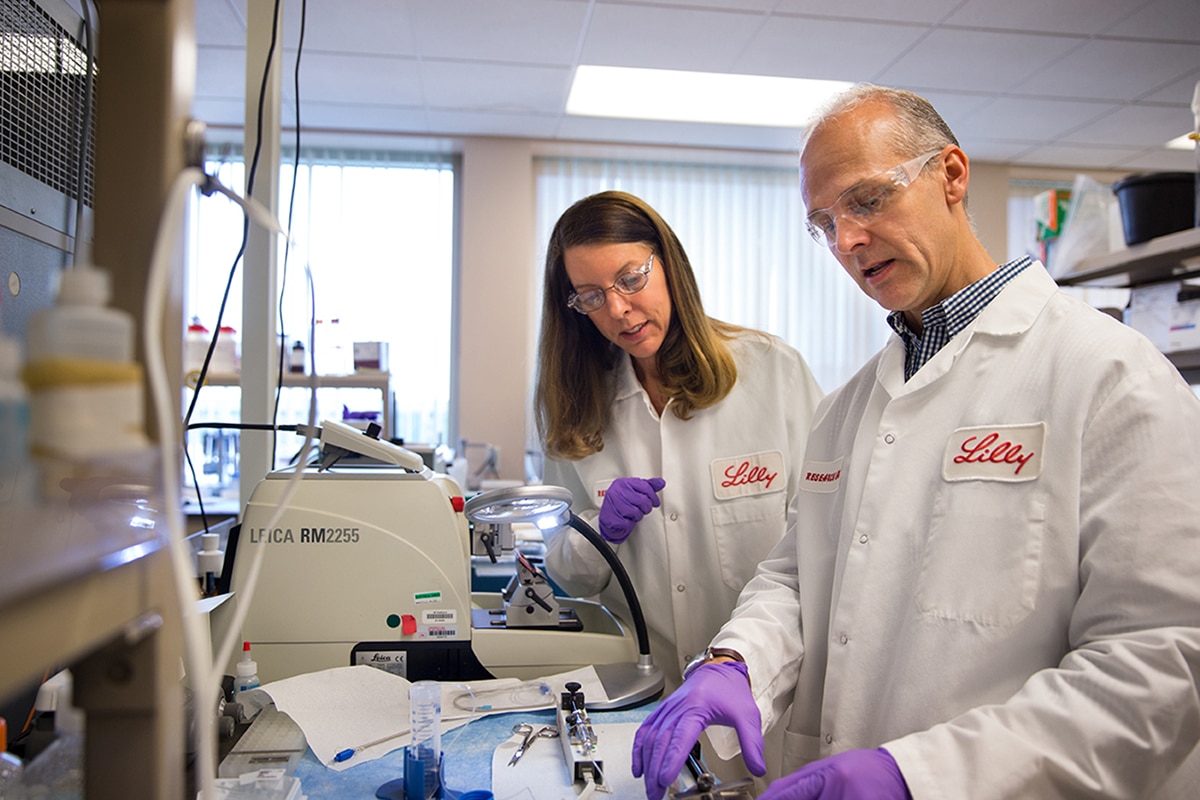Eli Lilly’s Kisunla became only the second drug after Japanese drugmaker Eisai’s Leqembi to be approved for Alzheimer’s disease by the USA’s Food and Drug Administration (FDA).
Kisunla can modestly slow the ravaging effects of the incurable disease in early stages and the FDA gave its nod on Tuesday for mild or early cases of dementia caused by Alzheimer’s.
The FDA nod came on Tuesday, on a day when a much smaller company, Annovis Bio, announced positive data from a late-trial stage for buntanetap, its treatment for Parkinson’s disease.
Like Leqembi, Kisunla is a laboratory-made antibody, administered by IV, that targets sticky amyloid plaque buildup in the brain – which is now considered by many as the main cause of Alzheimer’s. Both drugs are administered intravenously, but Kinsula will need to be taken once a month (twice-a-month treatment with Leqembi) and it can be stopped once amyloid plaques reach a minimal level.
Anne White, executive vice president and president of Lilly Neuroscience, Eli Lilly, said: “Kisunla demonstrated very meaningful results for people with early symptomatic Alzheimer’s disease, who urgently need effective treatment options. We know these medicines have the greatest potential benefit when people are treated earlier in their disease, and we are working hard in partnership with others to improve detection and diagnosis.”
$32,000 for one-year treatment
Kisunla, known chemically as donanemab, will cost more than Leqembi and will depend on how long the patients take the drug. Eli Lilly said a year’s worth of Kisunla therapy would cost $32,000 in the US ($48,696 for 18 months). Leqembi patients are currently paying $26,500 for a year.
However, the total cost of Kisunla will vary by patient, based on when they complete treatment. The FDA’s dosing instructions state that prescribers can consider stopping the Kisunla based on removal of amyloid plaques to minimal levels as observed on amyloid PET imaging.
Amyloid is a protein produced naturally in the body that can clump together to create amyloid plaques. The excessive buildup of amyloid plaques in the brain may lead to memory and thinking issues associated with Alzheimer’s disease.
“The potential to complete treatment after a limited-duration course of therapy, along with 30-minute infusions once per month, could result in lower patient out-of-pocket treatment costs and fewer infusions compared to other amyloid-targeting therapies,” Eli Lilly said in a release.
The FDA approved Kisunla based on results from an 18-month study in which patients being treated declined almost 22 percent more slowly in terms of memory and cognitive ability than the placebo group that received a dummy infusion.
Among the overall population of participants, Kisunla reduced amyloid plaques on average by 61 percent at six months, 80 percent at 12 months, and 84 percent at 18 months compared to the start of the study.
And just like Leqembi, the main side effect of Kisnula is brain swelling and bleeding. Eli Lilly said in its study that 20 percent of patients microbleed, which is slightly higher than those reported with Leqembi. However, the two drugs were tested in slightly different types of patients, which experts say makes it difficult to compare the drugs’ safety.






